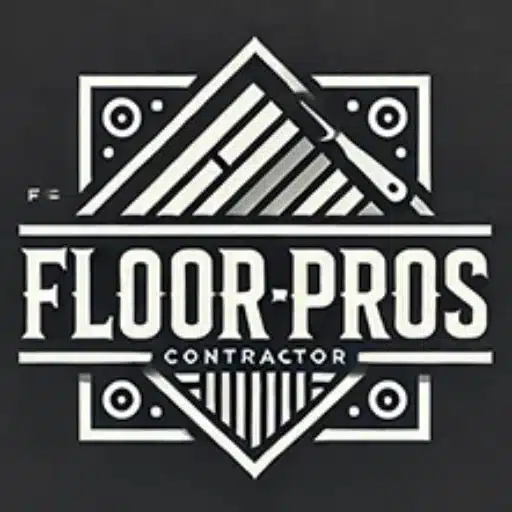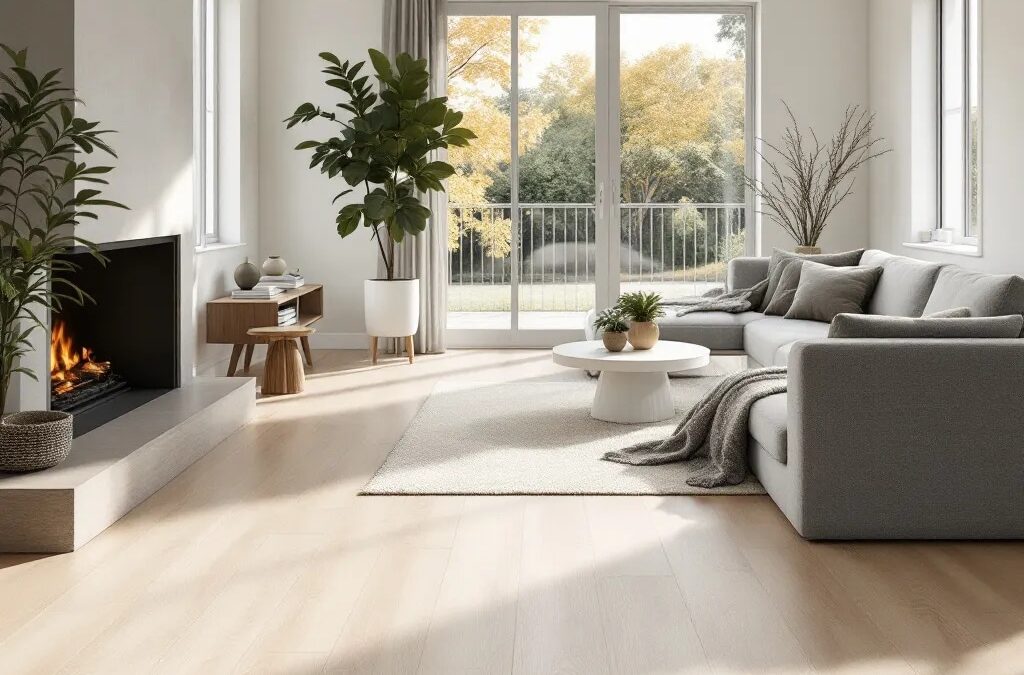
by content@click4corp.com | Sep 30, 2025 | Uncategorized
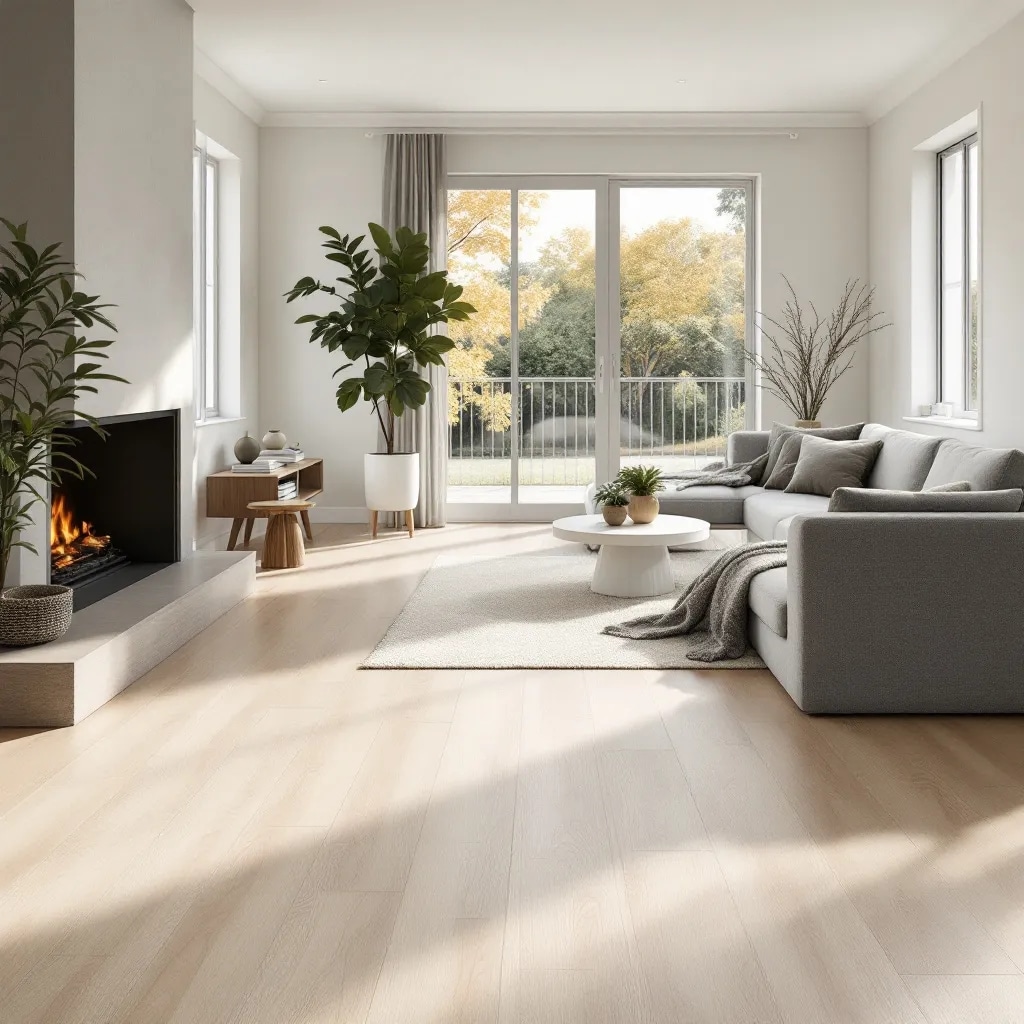
When it comes to upgrading your floors, Floors Pros has witnessed the rapid rise of modern LVP flooring styles for homes as the go-to choice for homeowners. Luxury vinyl plank flooring isn’t just durable—it’s stylish, versatile, and designed to mimic the look of natural wood, stone, or even marble without the high cost. With so many luxury vinyl patterns for modern homes, selecting the right option can be overwhelming. This guide will help you understand today’s top LVP flooring trends, explore stylish designs, and learn why this type of flooring is an excellent choice for busy households, kitchens, bathrooms, and beyond.
Why Homeowners Choose Modern LVP Flooring Styles
Over the past decade, luxury vinyl flooring has become a standout choice for modern interiors. Homeowners appreciate it for:
- Durability: Perfect for high-traffic areas, such as living rooms, hallways, and kitchens.
- Easy Maintenance: Vinyl planks are simple to clean and resist spills, making them ideal for busy households.
- Aesthetic Variety: From wood-look vinyl to stone-look luxury vinyl tile, there’s a design to match every modern home.
- Affordability: Get the look of natural hardwood or stone without the high cost.
This balance of style and functionality makes LVP one of the most versatile choices available for homeowners today.
Popular Modern LVP Flooring Styles for Homes
1. Wide Plank Vinyl Flooring
Wide plank designs are trending because they create a sleek, modern aesthetic that makes rooms feel more spacious. These planks often come in luxury wood-look LVP styles, giving the floor a natural, high-end feel.
2. Luxury Wood-Look LVP
The wood-look vinyl trend continues to dominate because it offers the warmth of natural wood with none of the upkeep. From oak and hickory to walnut and ash tones, you can find a wide selection of luxury vinyl that complements both traditional flooring and modern interiors.
3. Luxury Vinyl Tile (LVT)
Luxury vinyl tile offers the look of stone, marble, or even ceramic tile. It’s a perfect choice for bathrooms or kitchens because of its water resistance and ability to mimic the look of natural stone at less of the cost.
4. Herringbone and Chevron Patterns
For homeowners who love geometric patterns, herringbone and chevron patterns are gaining popularity. These contemporary vinyl flooring designs add elegance and sophistication to modern interiors, making them an excellent choice for entryways, dining areas, and other high-traffic areas.
5. Stone-Look Luxury Vinyl Tile
Stone-look luxury vinyl tile offers the modern and contemporary appeal of granite, travertine, or marble flooring. This style brings an air of luxury into bathrooms and kitchens, making it a standout choice for those who want to elevate their interiors.
Choosing the Perfect Luxury Vinyl Patterns for Modern Homes
When exploring luxury vinyl options, here are key points to consider:
- Color Spectrum: Neutral tones like gray, beige, and white oak remain the trends in luxury vinyl for 2025.
- Texture: Embossed and hand-scraped luxury vinyl plank flooring adds depth and authenticity to the floor.
- Room Functionality: Choose stone-look luxury vinyl tile for bathrooms, wood-look vinyl planks for living spaces, and wide plank vinyl flooring for open floor layouts.
- Versatility: Many LVP styles are designed to complement modern furniture and minimalist interiors, enhancing both style and functionality.
Best Luxury Vinyl Flooring Trends for 2025
The latest luxury vinyl flooring trends highlight bold textures and geometric patterns. Here are the standout trends homeowners are embracing:
- Light wood-look LVP to achieve a Scandinavian-inspired modern look.
- Dark walnut and espresso planks for a more luxurious interior design.
- Wide plank vinyl flooring for its ability to enhance your home’s style and provide a clean, modern aesthetic.
- Herringbone and chevron patterns that transform your home into a designer-inspired space.
- Stone-look luxury vinyl tile that gives the elegance of marble without the high cost.
Why Floors Pros is Your Local Flooring Partner
Ultimately, selecting the ideal modern LVP flooring styles for homes hinges on striking a balance between design, durability, and lifestyle requirements. Whether you’re drawn to wide plank designs, luxury vinyl tile, or wood-look planks, having the right team to guide you makes all the difference.
That’s where Floors Pros stands out. We specialize in LVP flooring installation services and offer a wide scope of flooring solutions, including tile, vinyl, carpet, wood, engineered wood, and stairs. Beyond flooring, we also offer remodeling services, including kitchen remodels, bathroom remodels, shower remodels, countertops, and home painting.
If you’re in Allen, TX, or nearby areas, our team is here to help you find the perfect luxury vinyl flooring to enhance your home’s style and transform your interiors without the high cost.
FAQs
1. What is trending in LVP flooring?
In 2025, wide plank designs, light wood-look vinyl planks, and geometric herringbone patterns are trending. These offer both timeless style and a modern aesthetic.
2. What color LVP is trending in 2025?
Lighter tones, such as white oak, ash, and gray, are dominating luxury vinyl flooring trends. These colors brighten interiors and pair well with minimalist and contemporary designs. It’s also a famous choice for commercial LVP flooring.
3. What is the most real-looking LVP?
Luxury vinyl plank flooring with embossed textures and hand-scraped finishes mimics the look of natural wood most effectively, making it the perfect flooring choice for homeowners who want authenticity.
4. What patterns should be avoided in LVP?
Busy or overly bold geometric patterns may clash with other elements in your interior. Instead, choose classic herringbone or wood-look LVP that can complement modern homes more seamlessly.
5. Can luxury vinyl flooring be installed in any room?
Yes! Luxury vinyl flooring offers water resistance, which makes it a perfect choice in kitchens, bathrooms, and high-traffic areas. It’s also ideal for living rooms and bedrooms because of its warmth and durability.
6. How do I choose between different LVT styles and formats?
Think about your interior design goals and the functionality of each room. Luxury vinyl tile works well in bathrooms and kitchens, while wood-look vinyl planks are excellent for living areas and bedrooms.
Ready to elevate your modern home with the best luxury vinyl patterns for modern homes? Trust Floors Pros to help you choose from a wide selection of luxury vinyl options—whether you love wide plank vinyl flooring, wood-look planks, or stone-look luxury vinyl tile. Our experts provide professional LVP flooring installation services and complete remodeling solutions in Allen, TX.
Call us today or visit our showroom to explore the perfect luxury vinyl flooring solutions for your home. From kitchens and bathrooms to modern interiors and high-traffic areas, we’ll help you find the perfect choice to suit your style and budget.
Also Read:
What 7 Secrets Make Vinyl Flooring Remarkably Durable?
What Are the Best Flooring Options for Stairs Now?
Discover the Latest Home Renovation Trends for 2025
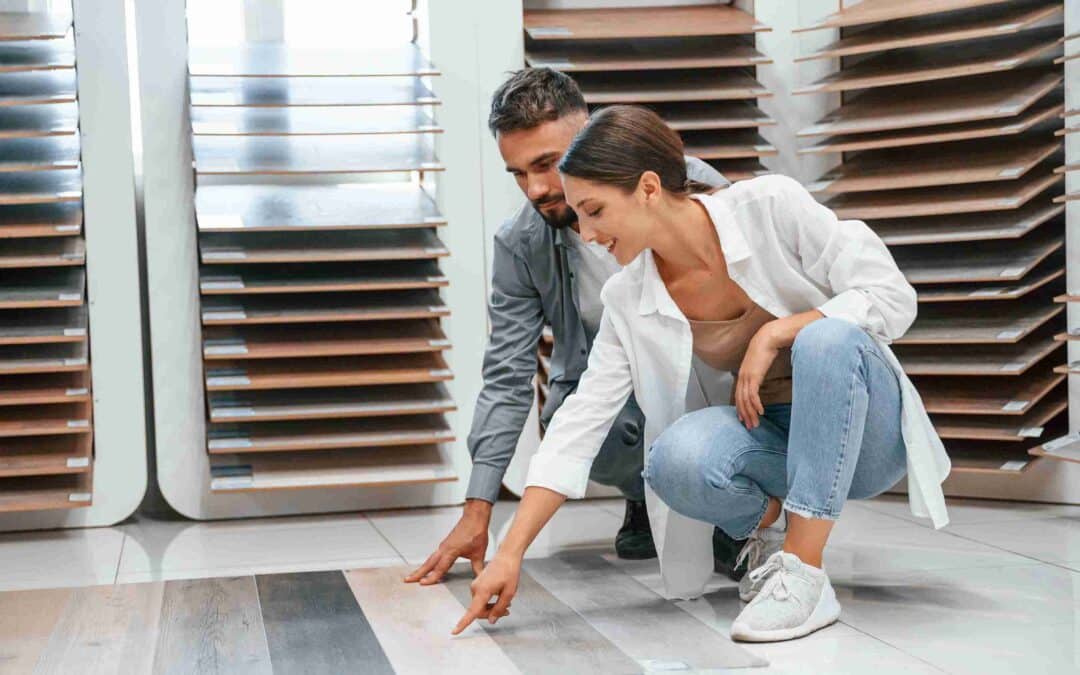
by content@click4corp.com | Sep 17, 2025 | Uncategorized
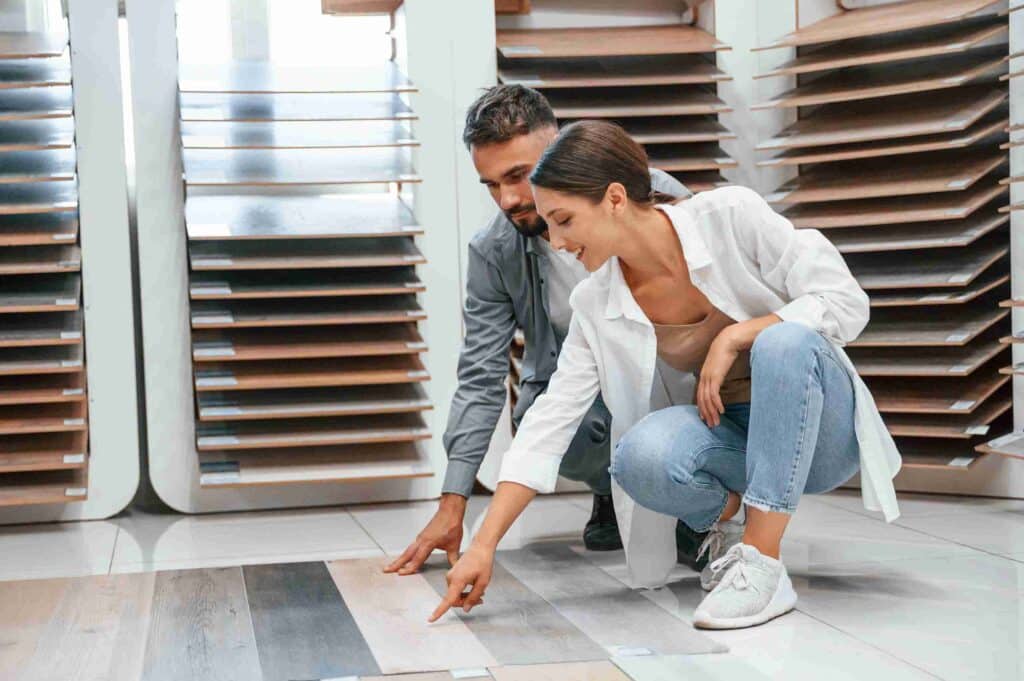
If you’re a homeowner thinking about updating your floors, Floors Pros has helped many people understand LVP flooring (luxury vinyl plank flooring) — why it’s one of the most popular flooring options these days. In short, it offers the look of hardwood or tile, with more water resistance, easier maintenance, and often at a lower cost.
What Exactly Is LVP & Related Terminology
“LVP flooring” refers to luxury vinyl plank flooring — planks made of vinyl that mimic the appearance of real wood or stone, but are more forgiving in terms of moisture, wear, and flexibility. Here are some variations and related terms you’ll hear:
- Luxury vinyl plank (LVP) vs luxury vinyl tile (LVT) — plank format looks like wood strips, tile format looks like stone or ceramic tile.
- Vinyl floor, vinyl planks, vinyl plank flooring — all refer to this category.
- Rigid core vinyl plank adds a more stable, solid support layer than thinner vinyl options.
- Wear layer — the protective top layer that helps resist scratches, water damage, foot traffic, and pets.
Why Luxury Vinyl Planks Are So Popular in Modern Homes
Here are the key reasons many homeowners are choosing LVP plank flooring:
Waterproof or Highly Water-Resistant
Many LVP floors are either fully waterproof or very water-resistant. That means you can use them in bathrooms, basements, kitchens — places where hardwood or laminate might warp or fail.
Looks & Feel of Real Materials
The visual grain patterns, textures, and styles have improved greatly. Luxury vinyl flooring can mimic natural wood, natural stone, or ceramic tile so closely that many can’t tell unless they inspect up close.
Durability & Wear
The wear layer on many luxury vinyl planks protects against scratches, dents, and heavy foot traffic. Pets, kids, spills — LVP handles these far better than many other types of flooring product.
Ease of Maintenance
A quick dry mop or damp mop, mild cleaners — that’s about all you need. No polishing, no finishing, no worrying about harsh chemicals damaging the seal or top surface.
Easy to Install
Many LVP plank flooring systems are glue-down, click-lock, or loose lay. Floors Pros, for example, offers LVP flooring installation services that make the process smooth and fast with minimal fuss over subfloor prep or leveling.
Affordability Compared with Real Hardwood or Natural Stone
While quality luxury vinyl tile or plank flooring isn’t “cheap,” it tends to cost less than real hardwood or stone, especially once you account for installation, finishing, and long-term care.
Flooring Allen TX: Quality Solutions Every Style
Types & Features (What You Should Know Before Buying)
To make a smart choice, here are important features and types of luxury vinyl flooring you’ll want to consider:
| Feature |
What It Means / What to Ask |
| Rigid core vs standard core |
Rigid core gives more stability (less flex), better performance over imperfect subfloor. |
| Wear layer thickness |
Thicker wear = more resistant to scratches, pet accidents, high-traffic areas. |
| Waterproof vinyl vs water-resistant vs only splash-proof |
Fully waterproof is best if you have wet zones (bathroom, basement). |
| Click-lock, glue-down, loose lay |
Each has different installation needs and costs. Glue-down often more permanent; click-lock easier to DIY. |
| Pattern / design |
Grain patterns, natural wood, ceramic tile look — choose what fits your style. Modern LVP flooring styles for homes often blend realism with design trends. |
Installation & Use in Different Settings
- Residential vs Commercial LVP Flooring: Commercial grade planks tend to have thicker wear layers, stronger cores. If your home sees a lot of foot traffic (mudroom, hallway, kitchen), aim for higher durability.
- LVP tile flooring: If you like the look of tile but want a softer, more forgiving underfoot feel, vinyl tile (LVT) or wide plank LVP that mimic tile can be great.
- Subfloor preparation: A flat, clean, dry subfloor helps prevent issues like gaps or buckling. Sometimes underlayment is used for sound or comfort.
- Acclimation: Before installation, let vinyl planks sit in the room for a day or two — to let them adjust to temperature and humidity.
Cleaning & Care: How to Keep It Looking Great
Here are practical tips for cleaning LVP, including cleaning LVP flooring protocols:
- Sweep or dry mop regularly to remove dirt and debris.
- Use a damp mop with mild, pH-neutral cleaner. Avoid harsh chemicals that might damage the wear layer.
- Wipe up spills promptly to prevent stains, especially in kitchens, bathrooms, or basements.
- For heavy foot traffic zones, placing rugs or mats can help reduce wear.
- Avoid excessive moisture pooling — even waterproof vinyl can have issues around edges or seams if standing water isn’t controlled.
Pros & Cons: What to Keep in Mind
Here’s a quick look at the advantages and possible limitations so you know what to expect.
| Pros |
Cons / Things to be careful of |
| Waterproof or water-resistant, durable, easier to maintain than real hardwood, affordable, many design options, good for high-traffic areas |
Can feel less “warm” than real hardwood underfoot; may dent under heavy point loads; seams could be visible; repair of deeply damaged planks might require replacing whole plank; quality varies a lot between brands. |
What 7 Secrets Make Vinyl Flooring Remarkably Durable?
Final Thoughts
Luxury vinyl plank flooring is a flooring solution that brings together style, practicality, and value. You get many of the visual benefits of hardwood or tile, but with easier maintenance, strong water resistance, and better affordability — all of which make LVP floor a clear winner for many modern homes. Whether it’s a basement, a bathroom, or a busy family kitchen, this type of flooring offers real advantages without sacrificing aesthetics.
At Floors Pros, we believe in helping homeowners choose the best flooring for their space, with honesty and full-service support.
FAQs
What does LVP mean in flooring?
LVP stands for Luxury Vinyl Plank. It’s a vinyl-based plank product designed to look like wood or stone, often with a protective wear layer and rigid core for stability.
What is better, LVP or laminate?
LVP usually wins for moisture resistance, durability with pets or spills, and comfort. Laminate can be less costly and also looks good, but it’s generally more vulnerable to water damage and may feel harder underfoot.
What are the disadvantages of LVP flooring?
It may lack the prestige or resale value of real hardwood; lower-end products might dent, fade, or have thinner wear layers; visible seams; issues if installation isn’t done properly.
Why does vinyl plank flooring need to acclimate?
To adjust to the room’s humidity and temperature so that the planks expand or contract less after installation, reducing buckling or warping.
Is LVP flooring high end?
It can be. Top-tier luxury vinyl flooring with thick wear layers, realistic wood or stone textures, and rigid core can feel very high end and perform well in high-traffic or commercial settings.
How long has LVP flooring been around?
Vinyl plank products have existed for decades, but modern high-quality versions — with waterproof cores, advanced printing, realistic textures and better wear layers — are relatively recent innovations (within last 10–20 years).
Does vinyl plank flooring need underlayment?
Depends on the product. Some LVP planks have built-in underlayment; others benefit from separate underlayment for sound, comfort, or to smooth small subfloor imperfections.
Is LVP flooring scratch resistant?
Many are, thanks to the protective wear layer. But “scratch resistant” doesn’t mean “scratch proof” — heavy objects, sharp tools, or pet claws can still damage if the quality or thickness of the wear layer is low.
What LVP flooring is the best?
The best depends on your priorities: waterproof vs water-resistant, whether you need commercial grade, how much traffic, your design style, budget, and the installation method.
Can LVP flooring be reused?
Sometimes yes — if it’s removable like click-lock planks and undamaged. But reuse can be tricky if adhesives are involved or if planks were cut or damaged.
Why choose LVP flooring?
Because it blends style, durability, and waterproofing in a way many classic options (hardwood, laminate, tile) can’t — especially in moist or heavy-use spaces.
Can LVP flooring be steam cleaned?
Usually not recommended. High heat and steam can cause warping, separation, or damage to the wear layer in many luxury vinyl products.
Are vinyl plank flooring waterproof?
Many are fully waterproof, especially in modern LVP and commercial LVP flooring lines. Always check the product spec to confirm.
Does LVP flooring expand?
Yes — vinyl materials expand and contract with temperature and humidity. Proper installation (allowing for expansion gaps, acclimation) helps prevent issues.
Is LVP flooring glued down?
Some are glue-down; others are click-lock or loose-lay. Glue-down tends to be more permanent; click systems allow easier replacement.
Can LVP flooring be stained?
Generally no — the wear layer protects the graphic and texture. If stain penetrates or damages deeply, the plank may need replacement.
How install LVP flooring?
Key steps:
– Prep the subfloor (clean, level, dry)
– Let the planks acclimate
– Install using the chosen method (glue-down / click-lock / loose lay)
– Insert transition strips and expansion gaps
– Finish with baseboards or trim.
If you’re ready to bring luxury, durability, and beauty into your home with expert LVP flooring or LVP plank flooring, Floors Pros is here to help. We offer full-service LVP flooring installation services, commercial LVP flooring options, and modern LVP flooring styles to match your taste.
Call us now at 469-972-9229 or visit Floors Pros at 753 Apollo Ct., Allen, TX 75002 for a free quote. Let’s work together to find the best luxury vinyl flooring solution for your space — whether it’s a busy kitchen, a wet bathroom, or a stylish living room.


